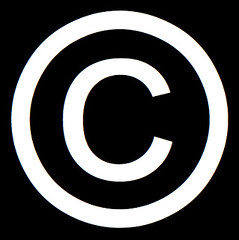There’s a big brouhaha over on Google+ right now. Someone created a post (including an image with a watermark) and a quote from The Matrix. Another person took the image (and words), removed the watermark, and shared it again (without credit). The post went to the top of the “what’s hot” list.
It’s all blowing up.
So, in light of that, here are a few handy tips about copyright rules:
1. You don’t have to specifically “copyright” something. You own the rights to anything you write, photograph, or video yourself.
2. This does not mean you can freely use others’ trademarks or intellectual property. So, you cannot create your own drawings of Donald Duck and sell them without Disney’s permission.
3. You can often ask copyright owners for permission to use their work. If you do receive it, make that clear in your post, book, article, photograph, or video.
4. You may quote small sections of something (such as an article or book) without asking first. A few lines is fine. Longer sections or an entire work (such as a poem) require permission. This is called “fair use.” You may also use others’ work if you are creating a parody (think The Daily Show, reporting for a news organization, or writing a review).
5. Sometimes, artists or writers will grant a creative commons license to reuse or share their works in specific ways. Or, they can release it into the public domain (for free use by anyone). Many (but not all) works produced by the government are also public domain.
These links should help:
US Government Copyright page – Frequently asked questions about copyright rules
Note the rules for Elvis sightings (no, I didn’t make that up).
Fair use – Rules for “fair use” explained
Public Domain – Older works become public domain after a set period of time (unless the copyright is renewed). Rules differ by country, the link is to US copyright rules.
Creative Commons licenses – A link that explains the various types of creative commons licenses.

